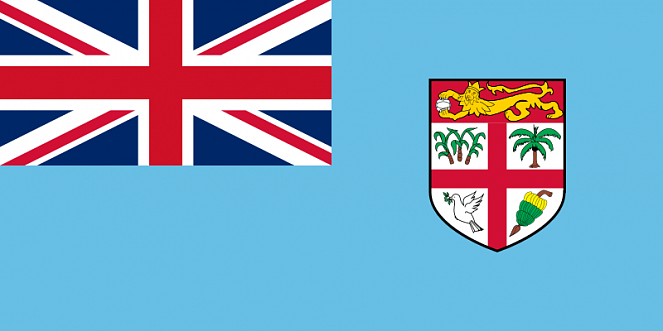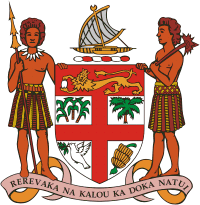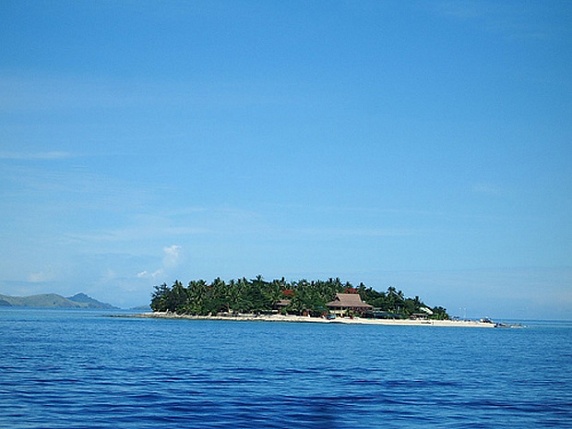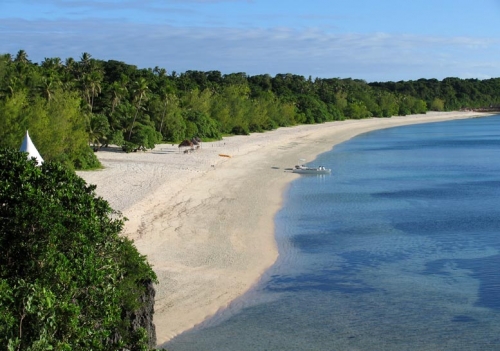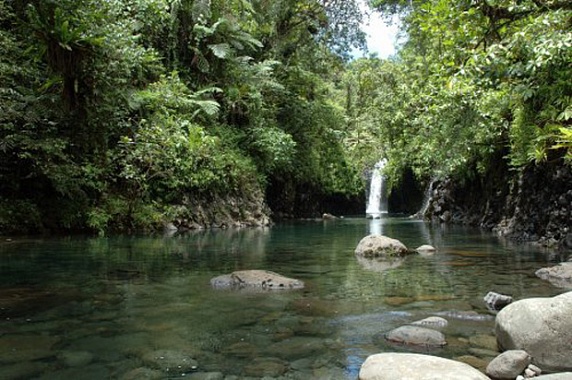 the Republic of Fiji
the Republic of Fiji
Speech by the Russian Foreign Minister, Sergey Lavrov, and his answers to questions from the mass media during the press conference on the results of the negotiations with the Minister of Foreign Affairs and International Cooperation of the Republic of Fiji, Ratu Inoke Kubuabola, Moscow, 27 June 2014
Ladies and Gentlemen,
With the Minister of Foreign Affairs of Fiji, Ratu Inoke Kubuabola, we discussed the state of bilateral relations, the 40th anniversary of which we are celebrating in 2014, however our ties have a deeper history. At the beginning of the 19th century, Mikhail Lazarev and Fabian Gottlieb von Bellingshausen visited the Ono Island, one of Fiji islands. Warm and friendly ties between our people had been established based on their diaries.
We revised the course of the agreements, which were reached during the official visit of the Fiji Prime Minister, Frank Bainimarama, to Russia in June 2013. That time, it was about the set-up of practical cooperation in a range of areas. It was stated that in the past we managed to reinforce the contractual legal framework and advance in the formation of conditions for the extension of trade, investment and humanitarian cooperation. Specific projects were planned and are being implemented in the area of education, staff preparation, sports, tourism and cultural exchanges. In these days a band from Fiji is participating in the Krasnoyarsk Music Festival, which we actively welcome.
We discussed topical international issues. We underlined the commitment to further cooperation in the UN, including on peacekeeping issues. Fiji has accumulated rich experience in this area. Fiji forces, in particular, are the largest force in the UN operation on the Golan Heights, we are trying to equip it with light weapons and necessary equipment.
We work to provide a coordinated approach when preparing resolutions of the UN General Assembly. We are grateful to our Fiji friends for the support of Russian initiatives related to the reinforcement of trust in outer space and international information security. I will specifically highlight the traditional support to the resolutions, which the UNGA adopts on the issues of inadmissibility of glorification of Nazism, by Fiji.
We agreed to cooperate within the framework of the UN to prepare the events devoted to the 70th anniversary since the end of the Second World War.
We examined the issue of Russia's cooperation with island states in the southern part of the Pacific Ocean (SPPO). It has become a tradition to hold such meetings on the side-lines of the UNGA session in New York, the fifth meeting will be held in 2014. We highly appreciate that the Fiji partners are traditional coordinators of this function.
We agreed to prepare a memorandum on cooperation between Foreign Ministries of the Russian Federation and Fiji, in which we will set out topics and mechanisms of regular consultations. I think that it will contribute to a more systemic foundation for our interaction.
I am satisfied with the results of our negotiations, which confirmed our mutual interest in the reinforcement of mutually beneficial ties. I am convinced that bilateral cooperation does not correspond only to the interests of Russia and Fiji, but contributes to stability, security and development in the southern part of the Pacific Ocean.
Question: Why the UN Security Council has still not recognised the Islamic State of Iraq and the Levant as a terrorist organisation and has not condemned the countries, which support these and other terrorists? It is known that the United States announced about the amount of 500 million US dollars, which they intend to send to support militants and terrorists in Syria. Do terrorists in this country differ from terrorists in Iraq and other places?
Sergey Lavrov: As to the announcement of the Islamic State of Iraq and the Levant or any other group a terrorist organisation, a consensus in the UN Security Council is required. Not all of its members are ready for that yet, but you can be sure: it is not about the position of the Russian Federation.
Sometimes even evident things take a long time in the Security Council. For example, even after Doku Umarov was included into the terrorist list of the United States, he was not on the list of the UNSC, because the United States examined some legal aspects of this situation for a long time. Later this decision was taken. I hope that we all will demonstrate single standards with regard to those, who are terrorists, and the bodies, which have terrorist goals and use similar methods. This is our principled position.
I believe that the main thing is to unambiguously confirm that terrorism is the most serious threat in the region of the Middle East and North Africa. All the actions of the international community should be arranged based on this. It is not a fate of some individual personalities, not an obsession with change of any region, which is believed to be a dictatorial by some persons, while others believed that it is not, but the threat of terrorism is a common threat for everybody. It is necessary to sift out ashes from cinders and to see this threat clearly. If we recognise this reality, I think that our practical actions will be more coordinated, logical and consistent, and, most importantly, efficient.
I have already had the opportunity to comment on the situation with the external support of militants, who are fighting in Syria. Russia did not welcome the decision by the United States to allocate 500 million US dollars to support the armed opposition in Syria. But I would not announce that these funds were allocated by Washington to support terrorism. We maintain close regular contact with the US Secretary of State, John Kerry. The United States understand the threat, which is coming from terrorist groups in Syria and other countries of the region for the interests of regional and global security. The US partners, with whom we discuss all the aspects of this situation, they assure us that they will provide only non-lethal aid and only to those groups, which distance themselves from terrorists. I expect that this will take place in practise, but this help will not “flow” into the hands of others.
However, to a large extent, instead of pumping up the military component of the conflict, it would be better to make these parties use their influence on those, who expect to receive these money, convince them to sit at the negotiation table. We will be ready for that. I will remind again that the logics of fight against terrorism and edging away of the patriotic opposition from terrorist groups, where the leading role belongs to foreign terrorists, corresponds to the statements adopted by the G8 a year ago at the summit in Northern Ireland. It was said clearly that all the G8 countries appeal to the Government and the opposition to joint in their fight against terrorism. This is the key to what should be done to settle the Syrian crisis.
Question: In your opinion, what measures can be undertaken to stop the smuggling of Iraqi oil, which was extracted in the territory under terrorist control?
Sergey Lavrov: The influence of extremists is serious in these territories. There are certain regions of respective countries, which are controlled by purely terrorist groups. In fact, purchases of oil from these regions by any country is, at the very minimum, there is a serious threat that terrorism is funded in this way.
Once, we adopted a respective resolution on Libya in the UNSC, which appeals not to purchase oil from territories under control of non-governmental troops. Now we are developing a statement by the UNSC President about adoption of a similar document with regard to the Iraqi oil, which is extracted in territories, which are seized by terrorists, including the Islamic State of Iraq and the Levant.
Question: On the eve of that the Iraqi Prime Minister, Nouri al-Maliki, in his interview to BBC announced that Iraq will receive Russian military aircrafts in two-three days, and this will be an effective means of fighting extremists. Can we view this is some kind of a contribution to the prevention of Iraq’s breakdown and fight against terrorism in the territory of this country? Having regard to the fact that the United States sent their military inspectors to help the Iraqi Army, it can be envisaged that Iraq will become a field for the renewal of cooperation between Moscow and Washington in fighting international terrorism?
Sergey Lavrov: I have not seen the interview by the Prime Minister, Nouri al-Maliki. Russia has sufficiently serious military and technical cooperation with Iraq. It was substantial before as well. During the last year’s visit of the Iraqi Prime Minister to Moscow, new agreements were reached, which were fully compliant with all the international standards and are aimed at the reinforcement of the defensive capacity of Iraqi legal authorities. It was not only about supplies of military aircrafts. We expect that this will allow the defensive capacity to be reinforced and therefore sovereignty of the State of Iraq.
As to our relations with the United States on the Iraqi problem, in particular the plan of fight against terrorism, this topic is quite acute in our latest phone conversations with the US Secretary of State, John Kerry. We are interested that the fight against terrorism does not become a hostage of any political preferences or whims. It should be independent from anything, like terrorism cannot be justified by anything.
We have a sufficiently effective bilateral mechanism with the United States, which combined different agencies, which are involved into the counter-terrorism fight. Since the last year this mechanism was frozen by our US colleagues. Now we are feeling their interest to this, to put aside irrelevant topics and renew our cooperation in counter-terrorism affairs. We are ready for that, and now it is up to our US colleagues.
Question: Information has appeared that the cease fire regime in the South-East of Ukraine, which was announced by the President of Ukraine, Petro Poroshenko, will be extended for 72 hours. Does Russia know something about this? As the Russian Ministry of Foreign Affairs reported, the need to extend cease fire was discussed yesterday during your phone conversations with colleagues from Germany and the United States. Do western partners support the Russia’s position about the need to extend cease fire? Do they express readiness to affect Kiev for these purposes?
Sergey Lavrov: We immediately welcomed the cease fire, as soon as it was announced, although we expected that it will follow earlier – immediately after the inauguration of the Ukrainian President, Petro Poroshenko. But better late than never.
Of course, we had some questions regarding the so-called “peace plan of Petro Poroshenko”. After the announcement of cease-fire, it was said that it is really for a very limited period of time, which is given to insurgents, to give up, lay down weapons and leave Ukraine; if somebody does not surrender, they will be eliminated. We appealed not to talk using ultimatums and concentrate on a positive side of the announced cease fire, underlined the need to extend it, because it is not easy to move from a fierce phase of confrontation and normal dialogue within 5-6 days. Everybody should come down and create a respective atmosphere. The President of Russia, Vladimir Putin, appealed to the extension of cease fire in his public statements and phone contacts with German, French and Ukrainian leaders, during the meetings in Vienna several days ago with Austrian leaders and the Swiss President of the Current President of the OSCE. We talked about this with our Ukrainian colleagues at other levels.
If the extension of the cease fire for 72 hours is confirmed, but he very fact should be welcomed. But we hope that this does not mean just a delay of the ultimatum for three days. Today we are undertaking efforts, including with support and joint mediation of Russia and the OSCE, to continue consultations between representatives of the Kiev authorities and the South-East of Ukraine and formulation of conditions, which will allow moving from consultations to real negotiations. I hope that the announcement by the Ukrainian President, Petro Poroshenko, that he will submit a new version of the constitution for examination by the Verkhovna Rada and its parallel transfer to the Council of Europe for its assessment by the Venice Commission does not mean that it is not another “agree or we will act otherwise” propositions or another ultimatum.
Let me remind that the Geneva Statement of the 17 April, which was adopted by the Russian, US, Ukrainian foreign ministers and the High Representative of the Union tells that the constitutional process should be inclusive, transparent and accountable, it should start immediately with participation of all the political forces and all the regions of Ukraine. This has not been done. Therefore, I am surprised that others accuse Russia that it should implement the Geneva Statement. Read this document – there are no appeals to our country in it, and the section related to the constitutional reform, the dialogue with participation of all the regions, is written in an unambiguous and clear way. What we get now is that in the time, which has passed from the 17 April, no immediate steps to start a dialogue on issues of the constitutional reform with participation of all the regions have been undertaken. Instead of that, it was announced that the reform has allegedly completed on paper and is submitted to the consideration by the Verkhovna Rada. I have no seen final propositions – they still have to be studied and we should understand their consequences. But the main thing is that the South-East of Ukraine should understand, to what extent its interests are being considered.
An optimum way would be to accept the other order: first, to create some coalition process, to coordinate variants for the extension of authorities of regions (its name is not important – federalisation, decentralisation, because the nature rather than a label is important), and then... to present the final project to the international community, to the Venice Commission, etc.
The situation is very fragile, and still hides many risks and threats. I hope that the announcement of a cease fire for 72 hours and the contacts, which should in these days be continued between representatives of Kiev and the South-East and through mediation of Russia and the OSCE, will lead to more sustainable agreements, the creation of more sustainable mechanisms of settlement, and mainly not settlement, but a respectful and equal dialogue, which will allow to take into consideration interests of the nationals residing in the South-East, who want their rights in Ukraine to be ensured.
